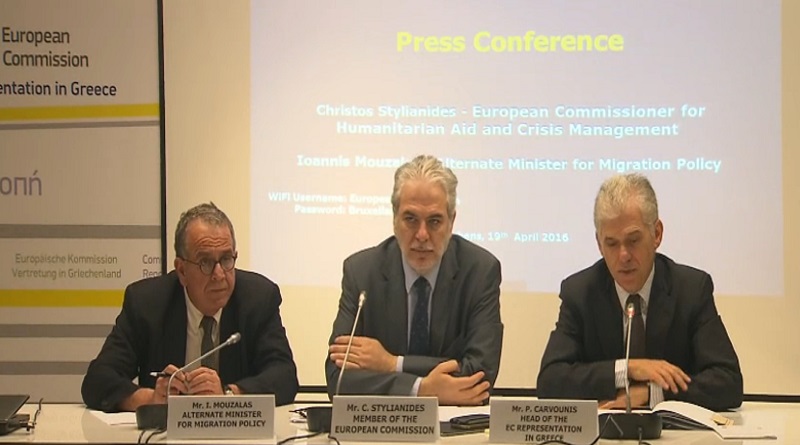EU provides €83 million to improve conditions for refugees in Greece
The European Commission yesterday announced it would provide €83 million to imporve conditions for refugees in Greece, under the new Emergency Assistance Instrument, proposed by the Commission on March 2nd. The funding is available to the UNHCR, the International Federation of the Red Cross and six international NGOs. These partners will be working with Greek NGOs who have the necessary local knowledge.
EU Commissioner for Humanitarian Aid and Crisis Management, Christos Stylianides, signed the first contracts in Athens under the new instrument for emergency support within the EU, set up to help Member States cope with crises, such as large numbers of refugees.
“We have to restore dignified living conditions for refugees and migrants in Europe as swiftly as possible. With the first projects active on the ground we are showing a concrete example of how the EU delivers on the challenges Europe faces. The funding will go to humanitarian aid partners that are working hand-in-hand with the Greek government and local NGOs to ensure that aid is provided in a well-coordinated and structured way in as many places as possible.” said Christos Stylianides.
The Commissioner met with Greek Alternate Minister responsible for Migration Policy Mr Ioannis Mouzalas, and visited projects that will support refugees in Eleonas, alongside both the Minister and the Mayor of Athens, Mr Giorgos Kaminis. Thanks to these new projects, the Commission will help provide tens of thousands of refugees and migrants in Greece with primary health care, food, better hygiene conditions, child friendly spaces and construct temporary housing.
The support announced comes in addition to overall EU support provided in the context of the refugee crisis in Greece. Since 2015, Greece has already received €181 million in emergency funding from the Asylum, Migration and Integration Fund and the Internal Security Fund to manage the refugee crisis, on top of €509 million already allocated under these funds for the Greek national programme 2014-2020.
SOURCE: European Commission




